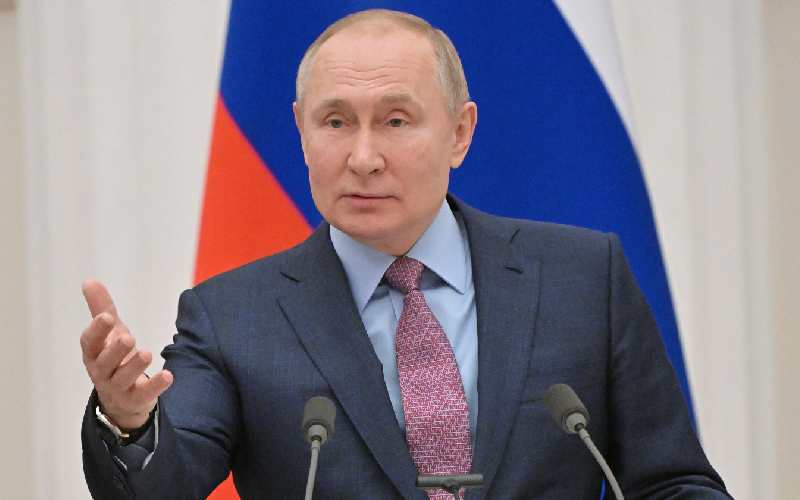×
The Standard e-Paper
Fearless, Trusted News

Russian President Vladimir Putin gestures during a joint news conference with Belarusian President Alexander Lukashenko in Moscow, Russia February 18, 2022. [Reuters]
Russia's President Vladimir Putin was set to oversee exercises by strategic nuclear missile forces on Saturday as Western leaders gathered in Munich, fearful that he could order troops massed on Ukraine's border to invade at any time.